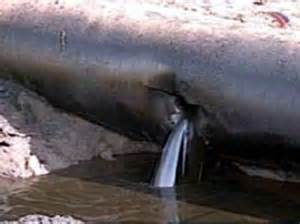The Lagos State Ministry of Energy and Mineral Resources orchestrated a crucial stakeholders’ meeting in Ikorodu to address the escalating problem of pipeline vandalism, encroachment, and the resulting explosions that have plagued the region. The meeting, themed “Preventing recurring explosions and the dangers of encroachment on petroleum products pipelines in Lagos State,” brought together a diverse group, including traditional rulers, community leaders, security agencies, local government representatives, landlord associations, youth groups, market women, religious leaders, transport unions, civil society organizations, and media personnel. This broad representation underscored the gravity of the issue and the need for a collective approach to finding solutions. The meeting served as a platform for open dialogue, information sharing, and the formulation of strategies to combat the menace of pipeline vandalism and its devastating consequences.
Commissioner for Energy and Mineral Resources, Biodun Ogunleye, highlighted the urgency of the situation, citing the increasing frequency of disasters linked to unauthorized activities around pipeline corridors. He emphasized that these incidents were not only causing avoidable loss of life and property but also posing a significant threat to the state’s overall security and economic stability. Ikorodu, in particular, has been identified as a hotspot for pipeline vandalism, with numerous incidents recorded in recent times. The vulnerability of pipelines traversing various communities necessitates concerted efforts from all stakeholders to protect these critical infrastructure assets. Ogunleye stressed the importance of community vigilance and information sharing, urging attendees to adopt the “see something, say something” approach.
The commissioner, represented by Adedayo Adereti, Head of the Oil & Gas Department, outlined the government’s proactive measures to tackle the problem. These initiatives include the comprehensive mapping of pipeline routes to identify vulnerable points and enhance surveillance. Collaboration with the Nigerian National Petroleum Company Limited (NNPC) is crucial for information sharing, coordinated security patrols, and joint response to incidents. Engaging with security agencies, such as the police and civil defense corps, is essential for enforcing regulations, apprehending perpetrators, and deterring future acts of vandalism. Furthermore, the government is working closely with the National Midstream & Downstream Petroleum Regulatory Authority (NMDPRA) to ensure compliance with safety standards, regulate activities around pipelines, and promote responsible behavior within the oil and gas sector.
The Ayangburen of Ikorodu, Oba Kabiru Shotobi, represented by Chief Olukayode Olomo, underscored the imperative of curbing pipeline vandalism. He emphasized the devastating impact of these acts on the community, including loss of life, environmental degradation, and disruption of economic activities. The traditional ruler called for greater collaboration between the government, security agencies, and community leaders to protect these vital assets. He also stressed the importance of community ownership and the active participation of residents in safeguarding pipelines within their localities. This collaborative approach is essential for fostering a sense of shared responsibility and ensuring the long-term security of these critical infrastructure assets.
Oba Shotobi also advised the authorities responsible for pipeline management to involve traditional rulers from the very beginning of pipeline construction projects. This early engagement, he argued, would foster better communication, understanding, and cooperation between the government, pipeline operators, and the communities through which the pipelines pass. By involving traditional rulers in the planning and execution phases of pipeline projects, potential conflicts and misunderstandings can be avoided, and a sense of ownership and responsibility can be fostered within the communities. This participatory approach would also enable traditional rulers to sensitize their communities about the importance of protecting pipelines and the dangers associated with vandalism.
The stakeholders’ meeting served as a vital platform for initiating a collective effort to combat pipeline vandalism in Lagos State. By bringing together various stakeholders, including government officials, security agencies, community leaders, and residents, the meeting fostered a shared understanding of the challenges and the need for collaborative solutions. The government’s ongoing efforts, combined with community vigilance and engagement, are essential components of a comprehensive strategy to protect pipelines, prevent future disasters, and ensure the safety and well-being of all residents. The “see something, say something” campaign empowers communities to play an active role in safeguarding their environment and contributing to the overall security of the state. Through continuous dialogue, cooperation, and proactive measures, Lagos State aims to create a safer and more secure environment for all its citizens.


